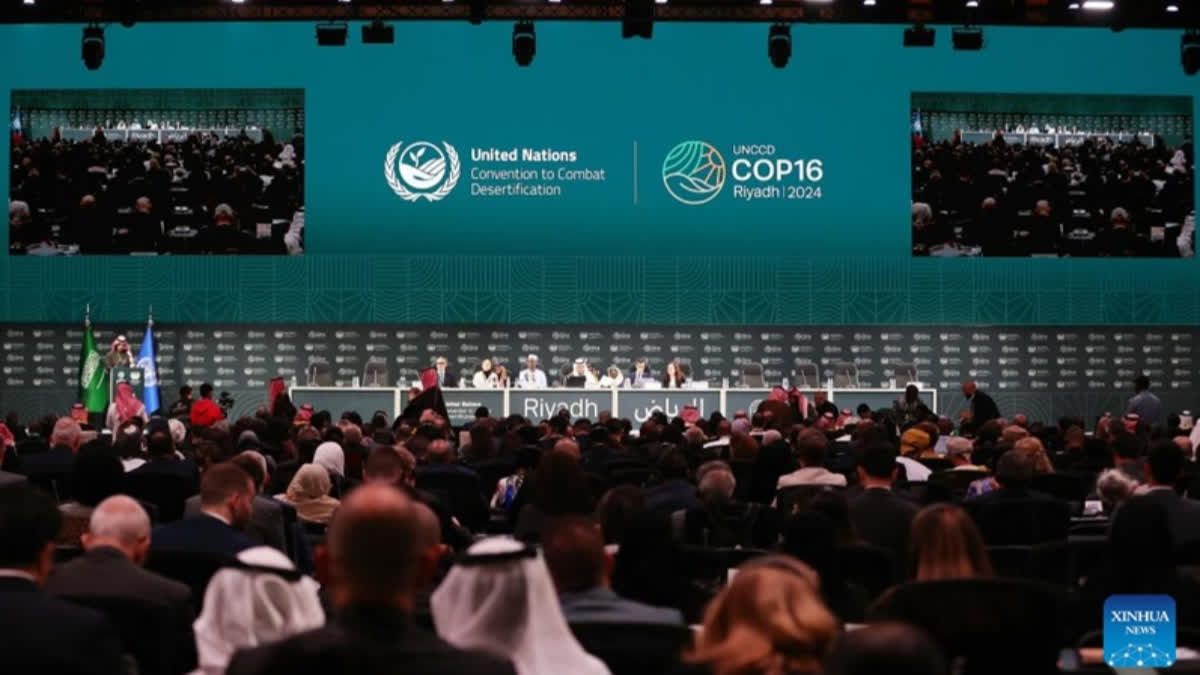New Delhi: India on Tuesday said healthy land is key to regional stability and invited countries to join Prime Minister Narendra Modi's 'Ek Ped Maa Ke Naam' plantation campaign to address land degradation and climate change.
Delivering India's statement at the 16th UN Conference on Desertification in Riyadh, Saudi Arabia, Union Environment Minister Bhupender Yadav said the country promotes eco-friendly lifestyles and the use of traditional knowledge in daily life. "Healthy land is key to regional stability. It helps create stable communities and strong economies by reducing factors that force migration," he said.
Yadav said India has adopted a comprehensive approach to address land degradation, enhance drought resilience, restore ecosystems, and promote biodiversity, aligning with the goals of COP16.
"Our honourable Prime Minister (Narendra Modi) has launched a mass campaign, 'Plant for Mother', under which we have planted more than one billion saplings this year. We urge all countries and their citizens to join us in this unique initiative, which would be the biggest tribute to Mother Earth, and would also contribute in addressing issues of land degradation and climate change," Yadav said.
PM Modi launched the campaign on World Environment Day, June 5, encouraging people to plant trees as a symbol of love, respect, and honour for their mothers. The initiative aims to plant 140 crore trees by March 2025 to combat land degradation and restore degraded areas.
Yadav said restoring land and building drought resilience need active community involvement, and the Green India Mission follows a "whole of government" and "whole of society" approach, with community participation as its core.
The minister said partnerships and knowledge sharing are essential to improving drought preparedness and resilience. Government, industry, and communities must collaborate to strengthen early warning systems, drought-resilient farming, and sustainable livelihoods, he said.
Earlier in the day, during a ministerial dialogue on the impacts of land degradation and drought on migration and security, Yadav said new technologies like space tech, GIS, drones, AI for soil and water management, and soil bioengineering can help fight land degradation and reduce migration.
These technologies, along with financial support, should be shared with developing countries facing severe land degradation, he said. During a ministerial dialogue on finance, Yadav said adequate financing holds the "key to achieving the objectives of the UNCCD" and that the World Drought Atlas released on Monday could serve as a guide for increasing mobilization of financial resources.
He shared that India has already restored 22.5 million hectares of degraded land against the target of 26 million hectares by 2030.
Read More:
- No Systematic Attack On Minorities, Hindu Leader Arrested On Specific Charges: Bangladesh Tells UN Forum
- UN Says It Is Halting Aid Deliveries Through Main Gaza Crossing Because The Route Is Too Dangerous
- Bangladesh Turmoil: Didi Wants Deployment Of UN Peacekeeping Mission
